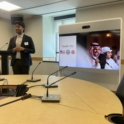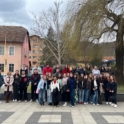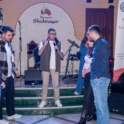Abdulaziz reflects on the highlights from serving as a mentor for CEW.
STORIES
YES Alumni Grant: Happy Perioding

By Prince-Obed Ihara Balika (YES 2015-2016, Ghana, placed by AFS in St. Louis, MO
Period poverty in Ghana is a pressing issue that affects girls and women in rural areas, causing them to miss school and other social activities. The situation has worsened due to excessive taxation on sanitary products coupled with the high rate of inflation, rendering these essential items unaffordable for many. This escalating crisis inspired my project, Happy Perioding, which aimed to provide girls with the necessary resources to manage their menstrual health with dignity.
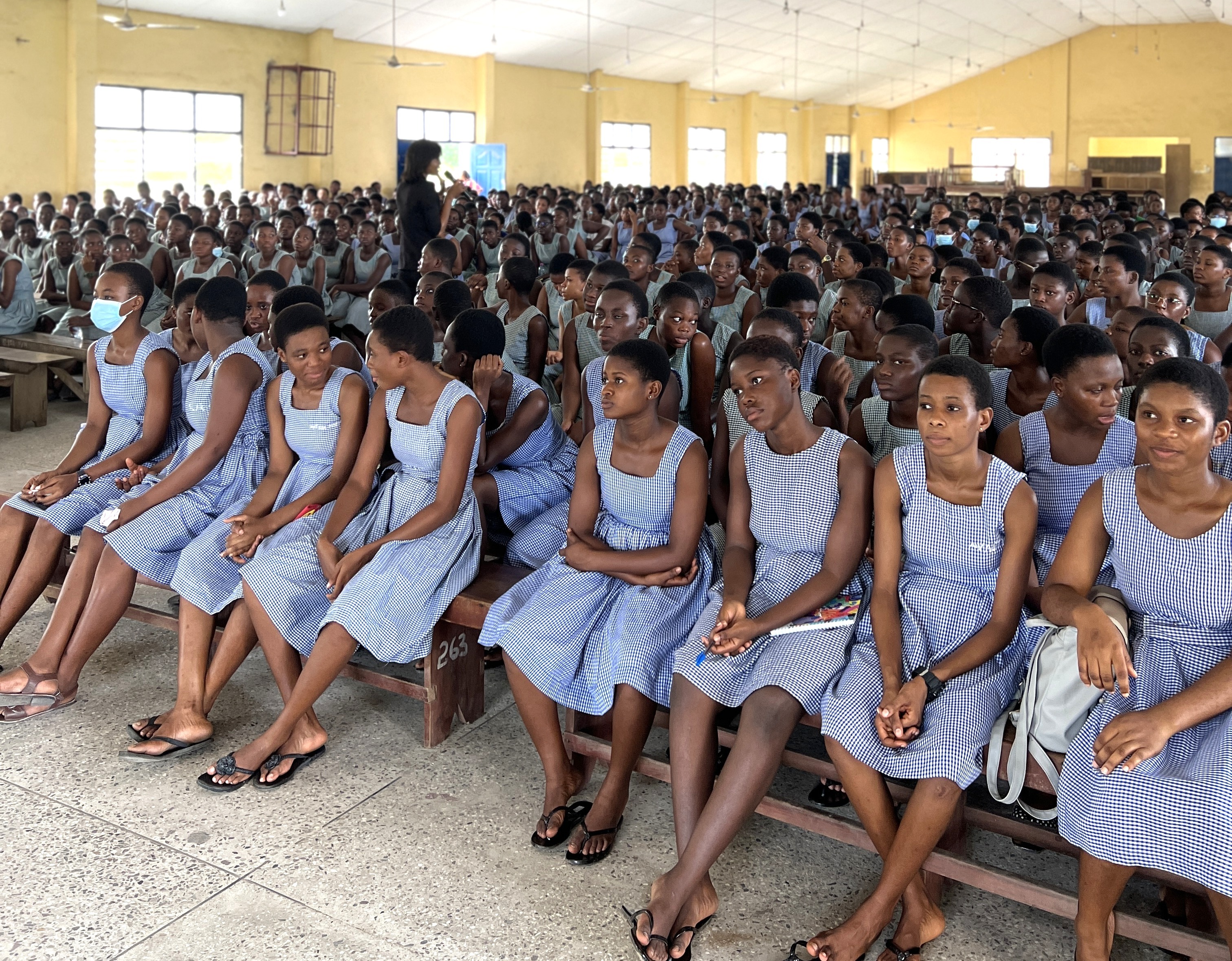
My name is Prince-Obed Ihara Balika, and during my exchange year I was hosted in St. Louis, Missouri. As a global ambassador of my country and the YES program, I participated in many volunteer activities in the U.S. From feeding the homeless with the disability rights and accessibility advocacy organization Mobility International USA (MIUSA) in Eugene, Oregon, to helping renovate the home of an elderly lady in St. Louis, I was empowered by and instilled with the value of giving back to my community.
After returning home, I started working on projects to benefit people with disabilities, like myself, and other disenfranchised groups in my home country. This inspired me to apply for a YES Alumni Grant to start the Happy Perioding Project, which aimed to reduce stigma around menstruation, promote reproductive health, and educate teenage girls in underprivileged communities.
Reproductive health and menstrual hygiene are crucial issues in my country. Organizations like Happy Monthlies and Viola Ford Fletcher Foundation have helped by providing sanitary pads to those in need. As a leader in the YES Alumni Association in Ghana, I have worked in orphanages and witnessed how young girls struggle to get menstrual products.
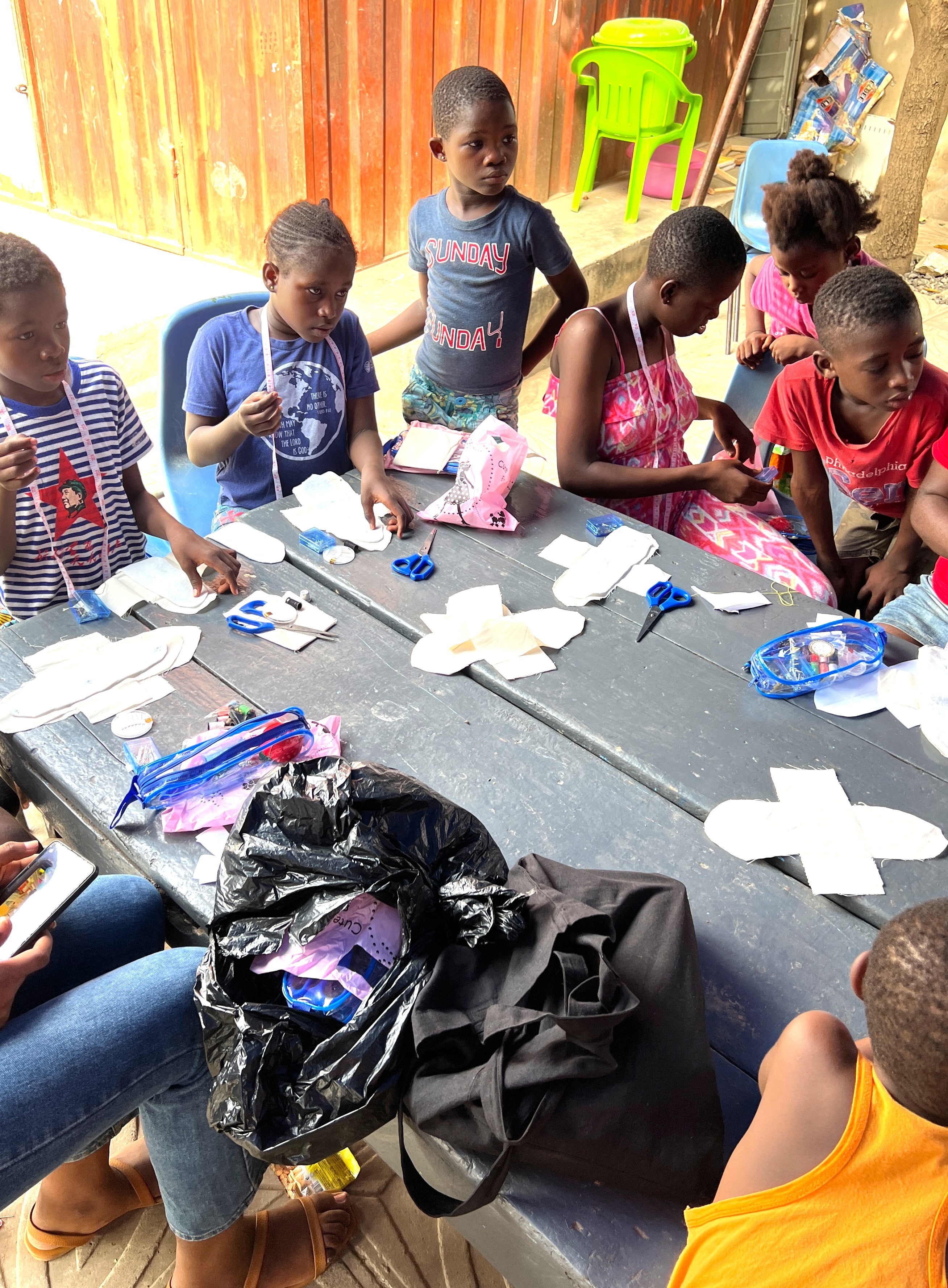
Our project’s main goals were to raise awareness in our community around menstrual health and hygiene and to train our beneficiaries how to make reusable pads. Our participants included 160 young, orphaned girls from Nyameduah Children’s Home and Chosen Children’s Home. Furthermore, at a session at St. John’s Grammar High School, around 2,000 female students learned about menstrual and reproductive health.
Girls from the orphanages and the high school learned how to make their own reusable sanitary pads. We taught them how to sew the pads, what materials to use, and different sewing techniques. In addition to sewing, we also organized a mentorship session with professionals from various fields. They talked to the girls about the importance of education and how to succeed in the careers they dream about. Another project component was a Zoom session on mental and menstrual health, led by two fellow alumni, Dr. E. A. Azusong and Dr. Joseph Bugri Kazussah, who are doctors in Ghana. They helped us understand how mental health and menstrual health are connected.
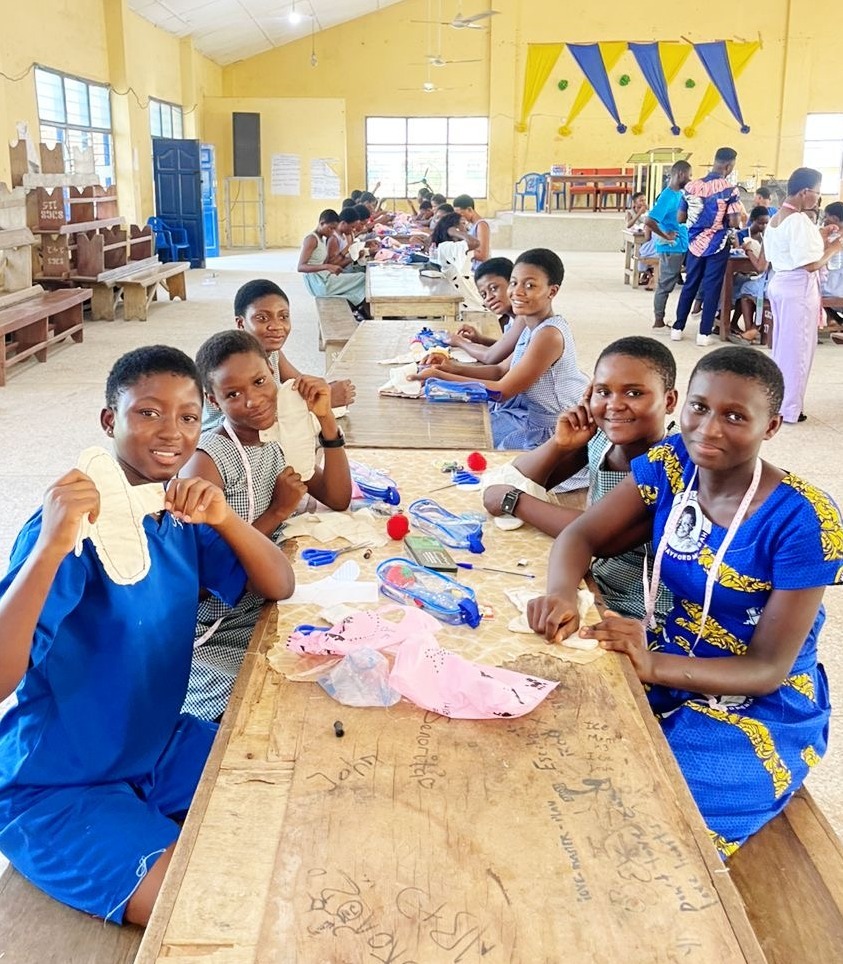
In our final session, my team and I talked with the girls and their caretakers to determine how successful our project was. The headmistress and prefects at St. John’s Grammar High School thanked us for our efforts. At Nyameduah, the orphanage caretakers noticed that the children were more open about menstruation.
One notable accomplishment of my project is that, with the help of my host parents, I established a network of volunteers in Missouri to sew reusable sanitary pads for me to deliver to my project’s beneficiaries. Some current YES students even sewed for the project for their exchange year volunteer hours. With the generosity of some people in Ghana, in addition to what I had already received from Missouri, we were able to distribute 918 reusable sanitary pads, 60 packs of disposable pads, and 175 wet bags to those we were helping.
I would like to thank the U.S. Department of State and the YES program for giving me the chance to execute this project. A big thank you to everyone who assisted me on this journey, especially my host parents, friends, and international family in Missouri, and my YES alumni family in Ghana. Thanks to my team for their hard work and dedication. This project proves that when we work together, we can make a big difference in our community.
Dr. Joseph Bugri Kazussah (YES 2012-2013, Ghana, placed by AYUSA in Phoenix, AZ)
Dr. Emmanuel Atuesinya Azusong (YES 2009-2010, Ghana, placed by PAX in Salt Lake City, UT)


